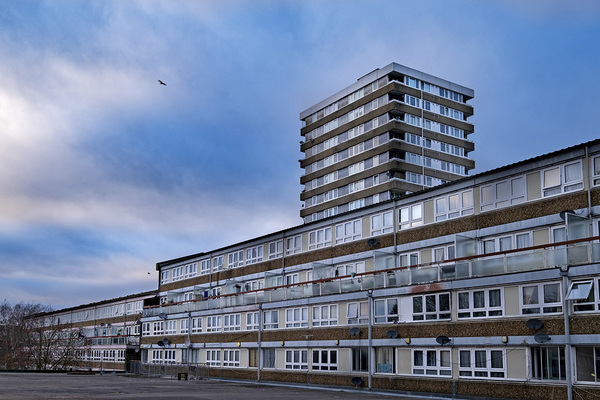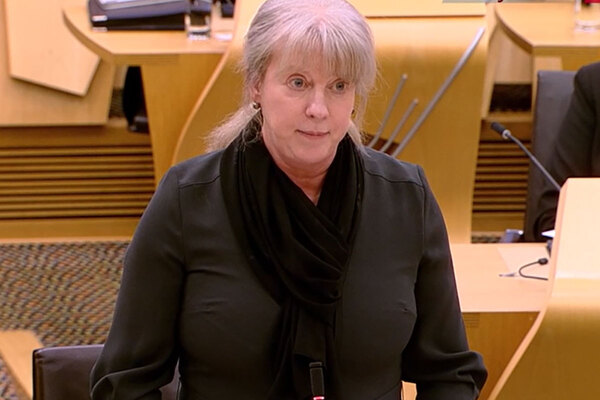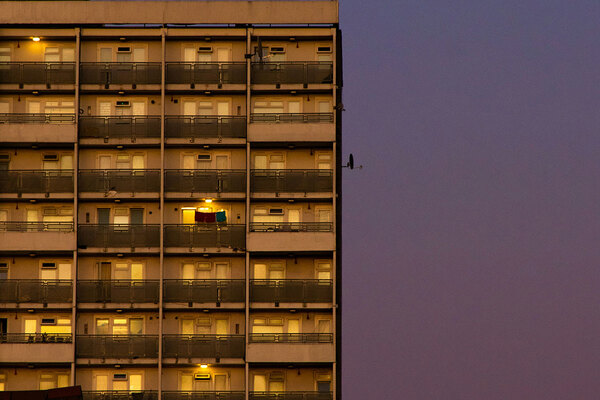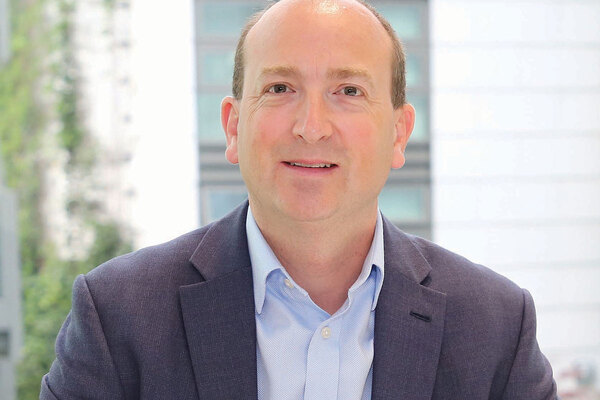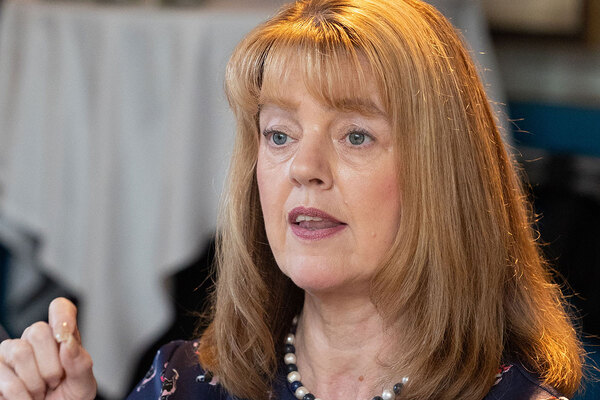You are viewing 1 of your 1 free articles
London estates feel ‘knackered’ because ‘we don’t care enough’, says G15 boss
Estates in London “feel a bit knackered” because “we don’t care enough”, the chief executive of Hyde has said.
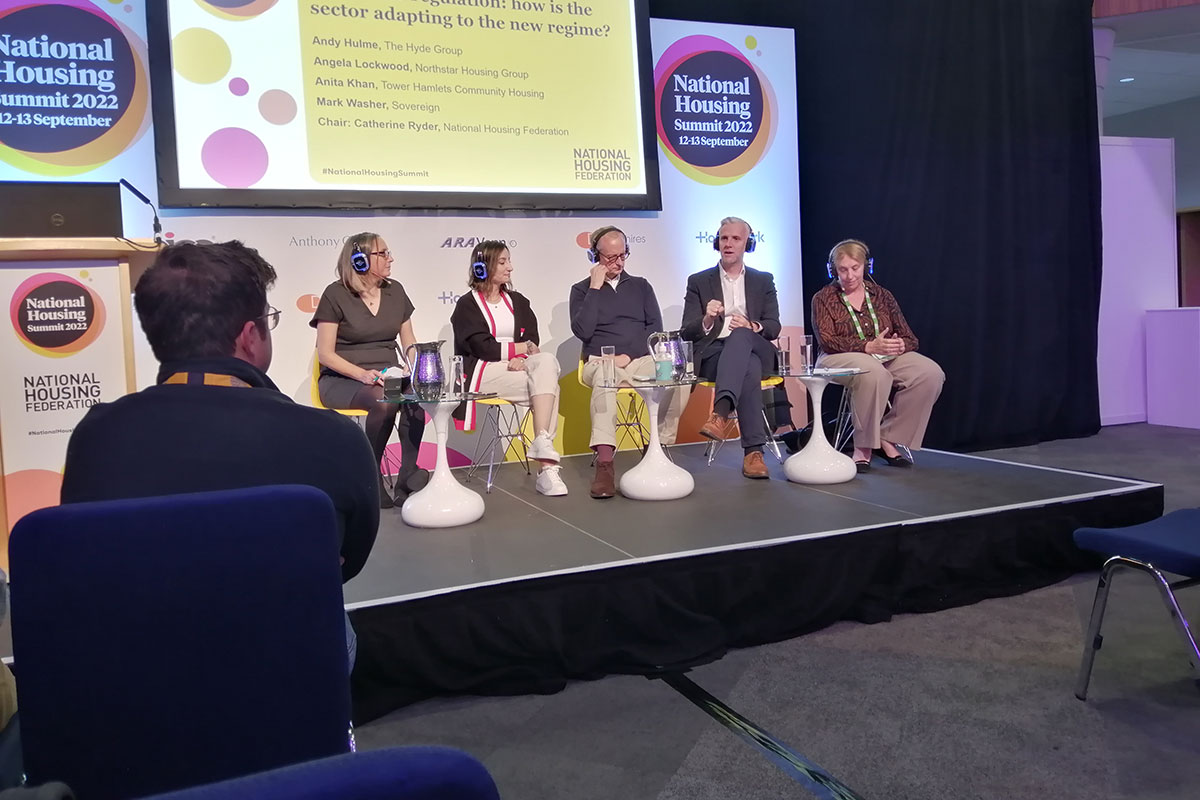
Speaking during a session on consumer regulation at the National Housing Summit in Birmingham earlier this week, Andy Hulme said big London estates “don’t feel like great neighbourhoods” and that is down to a lack of money, but also a lack of “accountability”.
Mr Hulme was one of four social landlord bosses on a panel discussing how far the sector had come since the Social Housing White Paper in terms of transparency and accountability.
The government published its long-awaited Social Housing Regulation Bill in July, putting into law a host of reforms to the regulation of the sector.
The legislation came five years after it was prompted by the Grenfell Tower fire, which claimed 72 lives.
At the heart of the reforms is a plan to broaden the remit of the Regulator of Social Housing (RSH), which will have a renewed focus on the regulation of consumer matters, such as disrepair and tenant satisfaction.
Asked how Hyde was doing on consumer regulation, Mr Hulme said the housing association “probably ticks most of the boxes”.
“The problem is we are literally ticking the boxes,” he said, and questioned whether tenants feel or see that.
Mr Hulme said: “The big old London estates, if you walk them, they don’t feel like great neighbourhoods, they don’t feel like great places to live, they feel a bit knackered.
“Some of that is money and we’ve got to find a solution to that. But some of it actually is that we don’t care enough. There’s not enough accountability, there’s not a culture that drives brilliant outcomes.”
He referred to an “angry” email exchange he had seen between one of Hyde’s property managers and a resident who wanted a communal door fixed in his estate after unwanted people had been entering his block.
Recounting the exchange, Mr Hulme said that the Hyde officer went back and said “no, there is no money to fix communal entrance doors, the budget has been spent”.
When the tenant replied to say this response was outrageous, the officer apologised and said “we’ll do it next year”.
Mr Hulme said that the staff member is a “great colleague”, but added: “How have we enabled that colleague, told that colleague that it’s OK to say that?”
Mr Hulme said there needs be a culture shift and a feeling that these kinds of thing are not discretionary, but must be done.
Panellists stressed the importance of honesty and transparency with tenants, particularly when it comes to pressures social landlords are under.
Anita Khan, chief executive of Tower Hamlets Community Housing, said that the 3,000-home landlord had fire safety costs that it never explained to residents.
“For an organisation our size, we’ve got five tower blocks needing major fire safety works. None of us planned for Grenfell, none of us knew what was going to happen.
“It changed the financial makeup of our organisation, but it was really remiss that we didn’t share those conversations with residents,” she said.
Ms Khan said the housing association had to reduce elective investment in estate improvement.
“Most people are reasonable most of the time and if we had that baseline assumption of our residents and talked to them like they were reasonable people in the way that we should, most people would probably [see the logic in that]…” she said.
Mark Washer, chief executive of Sovereign, said landlords must be open to letting tenants in.
“The culture piece that really shocked me when I joined [Sovereign] was the extent to which it wasn’t scared of letting tenants into the strategic decision-making, to the design of those customer-facing processes and systems.
“That involvement in strategy, that involved in co-creation and co-design has been extremely positive,” he said.
Angela Lockwood, chief executive at North Star Housing Group, said transparency and the right type of transparency is important.
“For me you have to take a step back and work out what it means to be transparent in the broader sense,” she said.
She said the “real questions” that organisations need to ask themselves when it comes to transparency are what assurance boards have on what matters to tenants and what is the right thing to do for tenants.
Sign up for our regulation and legal newsletter
Already have an account? Click here to manage your newsletters
